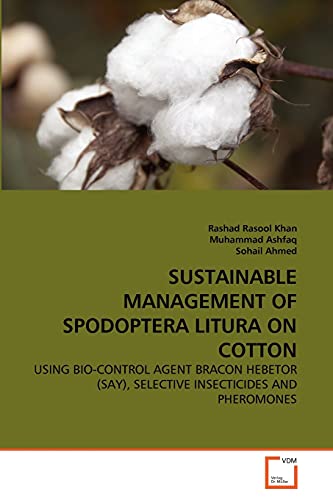Synopsis
Cotton has been placed amongst one of the most important cash crops, in Pakistan. Armyworm, Spodoptera litura, is one of the most notorious chewing pests, attacking this crop and hence depriving the farmers from getting good yields. The project under study, was, therefore, planned to develop some control strategies which are not only effective in their implementation, but also safer to the non-target organisms. A bio-control agent, Bracon hebetor (Say.) was used to control the pest, along with integration of some new chemistry insecticides and pheromones throughout cotton growing season. The experiments were carried out under the laboratory conditions in the Dept. of Agri. Entomology, Univ. of Agriculture, Faisalabad, for the improvement of mass rearing of the parasitoid, its potential at various temperatures and searching ability. The experiments for the screening of insecticides for their selection in Pest Management program of were performed in the laboratory as well as semi-field and field conditions. Resultantly, the study recommends that bio-control agents should be integrated with other tactics in order to avoid the chemical load in the environment.
About the Author
Rashad Rasool Khan, Asstt. Professor in the Dept. of Agric. Entomology, Univ. of Agriculture, Faisalabad, Pakistan, published 18 research papers, one Laboratory Manual & 5 research articles in local language (Urdu) and completed PhD in 2010. In future, he wants to investigate the potentials of other bio- control agents against various pests.
"About this title" may belong to another edition of this title.
